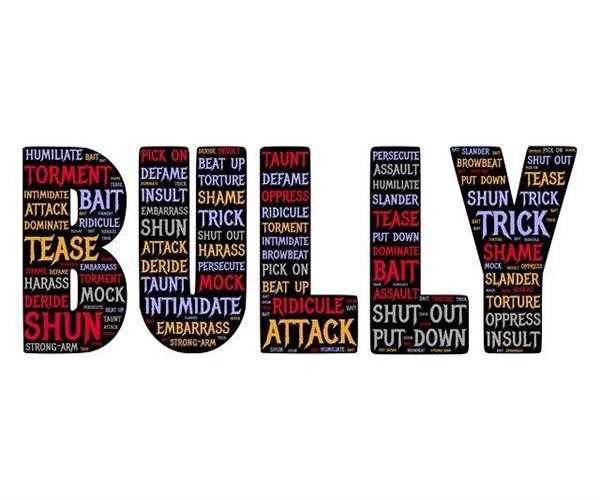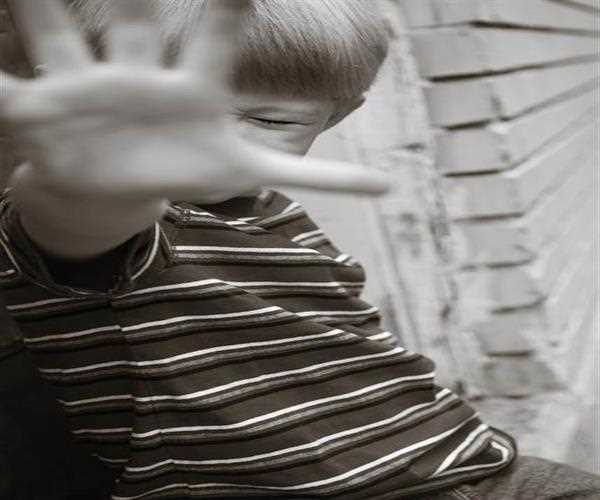
25-Feb-2022 , Updated on 2/25/2022 6:28:37 AM
Bullying: Bruising childhoods.
People who love themselves, don't hurt other people. The more we hate Ourselves, the more want others to suffer
Bullying:
The image of bullying can be a problem on the school grounds, however, its mental health consequences extend beyond that. Children who are bullied are more likely to experience social and emotional problems, both short-term and long-term, as adults.
Bullying occurs when a young person has a physical and social edge over another and uses that advantage to threaten another.
Bullying can cause the subsequent consequences shortly:
- Worry
- Depression
- Suicidal thoughts or self-harm
- These phenomena may fade over time, but do not indicate that the child has 'moved on'. According to research, children who are abused in childhood are at higher risk for psychological problems than adults.
Long-term effects:
As the child grows older, the results of bullying won't diminish. According to research, young people who have been abused as children are more likely to experience mental health problems as adults, including:
- Anxiety in general
- Anxiety disorder
- Fear of crowds
- Depression
- Loneliness
- Escape from school
What is bullying?
Bullying is defined by the Centers for Disease Control and Prevention as a form of 'youth violence' that involves unwanted hostile behavior from the abuser (individual or group). Harassment comes from a power imbalance, whether perceived or actualized in terms of social status, wealth, muscle strength, or size. Bullying can occur over time, causing physical, emotional, social, or educational harm.
Bullying is different from one-on-one behavior or isolated episodes such as disagreements and fights, as it happens over time.
The following are samples of bullying behavior:
- Hitting, punching, punching, or spitting at a victim — physical threat or injury
- Examples of social exclusion include suffocation, ridicule, naming, and/or insulting the victim.
- Threatening, vandalizing property, forcing a victim to do something they should not do
- Misinformation is being spread about the victim.
Effects of bullying on mental health:
Bullying can hurt an individual's mental, physical, and psychological state during adolescence and adulthood. This can lead to ****** harm, socio-emotional problems, and in some cases even death.
Youngsters and teens can have sadness, anxiety and in some cases damage their self-esteem for a long time. Victims often live alone. Some victims may respond to intense, unpredictable violence; According to stopbullying.gov, 12 out of 15 shooters received threats.
Bullies are more likely to commit acts of sedition, sometimes to violent acts such as clashes and destruction of property. They often experience
academic difficulties, sometimes to the point of dropping out. They are more vulnerable to drug and alcohol abuse. This behavior continues until maturity if they are likely to misbehave with their spouse.
Bullying - Victims - in conjunction with bullies can have very serious consequences. They are more likely to develop psychological and behavioral problems than those who are lonely or subject to threats. This group had the very best rates of depression, anxiety, and suicidal thoughts and behavior.
The audience was divided into two categories: those who intervened to stop the threats and those who did not. The latter may be afraid of revenge and maybe angry that they did not intervene when they wanted to. They may experience increased anxiety and depression, which can have an impact on academic performance, as well as increased substance, alcohol, and tobacco use. Those who intervene to stop harassment, on the other hand, gain benefits such as high self-esteem.
There is no clear link between bullying and suicide, which is rarely caused by a traumatic event. Bullying, on the other hand, contributes to suicidal behavior that leads to feelings of helplessness and helplessness. Victims of bullying and regular offenders are more likely to engage in suicidal behavior. Victims of bullying are at higher risk of committing suicide.
The Importance of speaking out against Bullying:
Everyone needs to recognize bullying warning signs due to potential mental health consequences.
Abused children may return home with unexplained injuries, 'lost' books, or destroyed items. They may have trouble falling asleep and may lose interest in hobbies. If they hesitate to go to the cafeteria at lunchtime, they can go home hungry. They can create illness to avoid going to school, which affects their grades. Some people may break away from social situations altogether, while others may begin to harass others. Victims may try to deal with self-harm or flee.
Harassment, on the other hand, becomes more hostile over time and may even include bullies in their friendly group. Bullying is a way for people to cope, to manage stress or injury in their life. They can try not to be responsible for the consequences by playing the 'blame game'. Unexpectedly large amounts of money or goods are also red flags.
Bullying is painful for all parties involved, so it is important to handle it as soon as possible. Teachers and parents can work together to ensure safety and prevent future threats. Relaxation and stress management skills also can help.

Student
An inquisitive individual with a great interest in the subjectivity of human experiences, behavior, and the complexity of the human mind. Enthusiased to learn, volunteer, and participate. Always driven by the motive to make a difference in the sphere of mental health - and normalize seeking help through a sensitive and empathetic approach
Join Our Newsletter
Subscribe to our newsletter to receive emails about new views posts, releases and updates.
Copyright 2010 - 2026 MindStick Software Pvt. Ltd. All Rights Reserved Privacy Policy | Terms & Conditions | Cookie Policy
